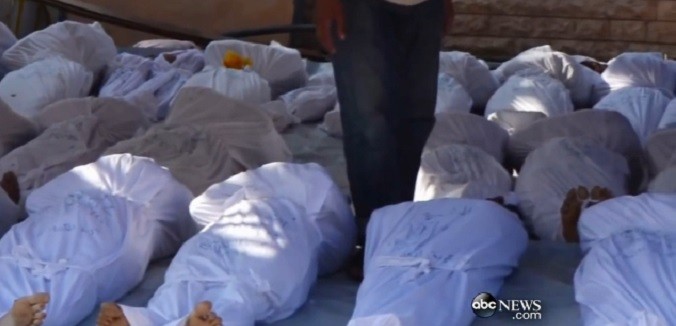The United Nations announced Tuesday that it was ceasing to update the death toll in Syria’s nearly three-year war because it can no longer reliably keep track of those killed by the conflict. The Associated Press noted that the last official figures, which were current as of July 2013, estimated that at least 100,000 people had perished.
Rupert Colville, a spokesman for the U.N. Office of the High Commissioner for Human Rights, blamed the failure to provide new figures on the organization’s own lack of access on the ground in Syria and its inability to verify “source material” from others. “It was always a very difficult figure,” Colville said in answer to a question by The Associated Press. “It was always very close to the edge in terms of how much we could guarantee the source material was accurate. And it reached a point where we felt we could no longer cross that line. So for the time being, we’re not updating those figures.”
Since then an offensive by the Bashar al-Assad regime has eroded years of rebel gains, at times deploying chemical weapons against civilian areas in which opposition forces were entrenched. Support from Iran and its Lebanese terror proxy Hezbollah have been critical in the regime’s efforts, to the point where by late November United Press International was quoting experts assessing that ‘the Iranians now control the [Syrian] regime’s military campaign.’ Yet the possibility of the Islamic Republic bringing a positive solution to the ongoing conflict is feasible to some. Secretary of State John Kerry declared this weekend that the Obama administration hopes that Iran will contribute to a peaceful resolution of the conflict, and that Washington would be “happy to have Iran be helpful.”
[Photo: ABC News / YouTube]




